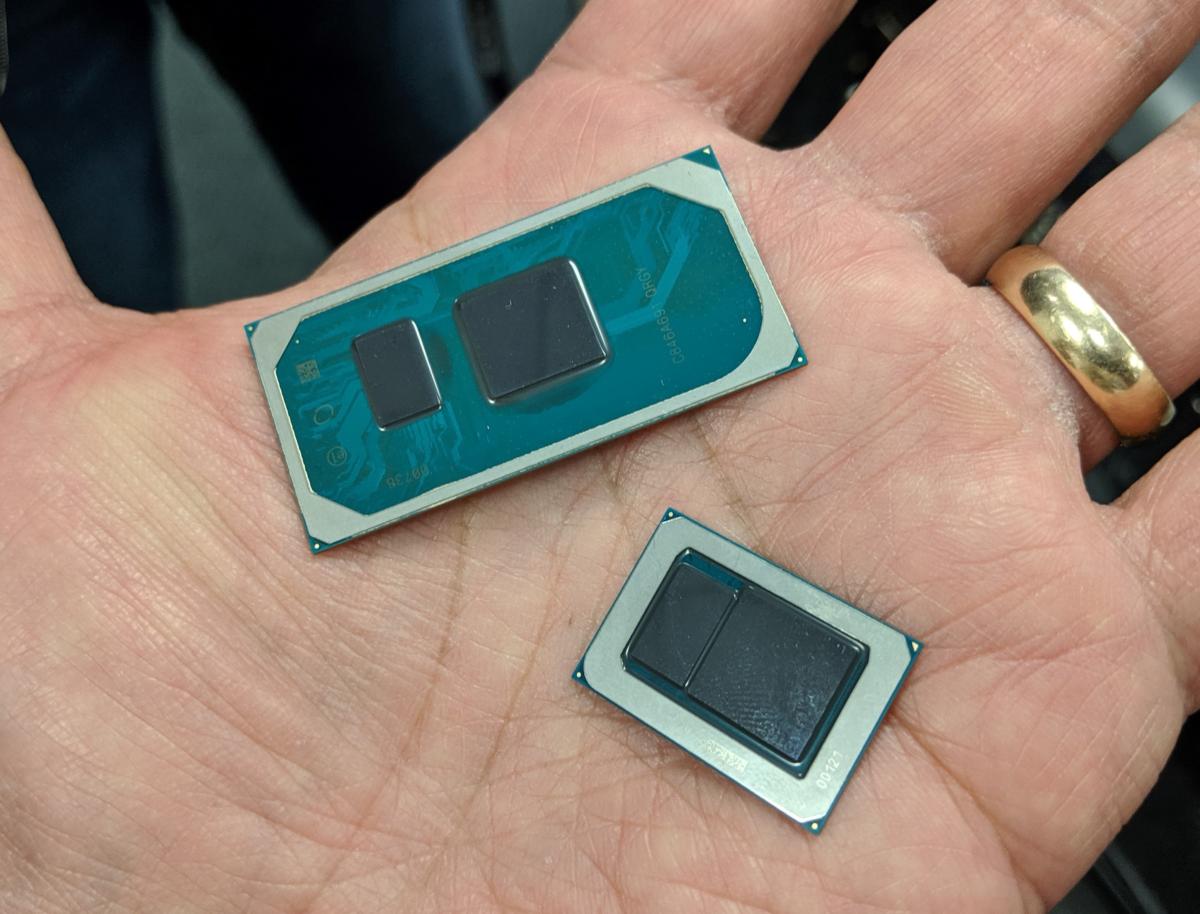Intel faces competition from both AMD and Arm.
Gordon Mah Ung / IDG
Today’s Best Tech Deals
Picked by PCWorld’s Editors
Top Deals On Great Products
Picked by Techconnect’s Editors
Show More
Intel faces perhaps its toughest competition in a long time: AMD’s Ryzen chips are eating into the market share of Intel’s Core chips, and Arm chips like Apple’s M1 are finally getting some respect. So why should PC makers, let alone consumers, buy Intel? The answer, according to chief executive Bob Swan, is a simple one: supply.
Swan said that Intel is ready and able to supply PC makers with chips, especially its new 11th-gen Tiger Lake parts. Swan also touted its Evo co-design initiatives in a small roundtable with reporters as CES 2021 kicked off.
“We are not going to constrain your growth, i.e., I’m going to have too much capacity before I’ll have not enough capacity, and I don’t have to wait for somebody else to allocate to me,” Swan said, implying that those issues could arise with AMD. “I’m going to be the allocator, and you can count on us to have inventory on hand to meet your spikes in demand.”
Swan did not mention the processor shortages that plagued Intel throughout most of 2019 and into 2020. Intel spent the better part of a year fighting to bring its 10nm fabs online while incrementally improving the company’s 14nm process technology through multiple generations. In an Intel briefing ahead of CES, Swan talked about one intriguing way of solving that problem in the future—bringing third-party manufacturing lines within Intel’s walls.
Swan also highlighted the company’s design efforts, both in the original Project Athena initiative and its successor, the Evo brand. In both cases, Intel engineers worked with PC partners to co-design flagship, “halo” PCs that would stand out from the competition.
“It’s knowledge…our ability to work with our engineering teams to almost co-optimize the products that they’re working on, the technology dialogues that we have with the OEMs in particular,” Swan added. “So we’re part of their design team, not just an order taker for their product needs.”
 Intel
IntelTechnical talent matters more than anything
Swan was formerly Intel’s chief financial officer, and there’s always been an institutional suspicion of “bean counters” and managers at what has always been a deeply technical company. So it was interesting to hear Swan reject the financial side of the house when asked what mattered more to Intel’s success: saving money or technical leadership.
“The technical,” Swan replied. “As you know they’re not decoupled: rate of innovation, rate of products, capacity in place, investing in technology development. One drives the other. We know that, whether it’s capital, whether it’s continuing to increase R&D and compress the cycles and when we get products out. That’s what drives our financials, it’s very tightly correlated. In the scheme of things, it’s relatively easy to, you know, maybe save money. But we can’t save enough money to offset what incremental demand and volume does for us across the spectrum of both architectures and where compute happens.”
Swan said that Intel’s hiring prioritizes technical talent, and that the company’s leadership emphasizes those viewpoints. “I think the realization is that we can get more diverse points of view, more technologists in the room when we’re making big-time decisions,” Swan said.
Note: When you purchase something after clicking links in our articles, we may earn a small commission. Read our affiliate link policy for more details.
As PCWorld’s senior editor, Mark focuses on Microsoft news and chip technology, among other beats.


